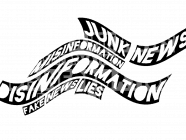Werbewoche, January 15, 2009
The media’s latest catchword is misleading.
At practically every media symposium in the German speaking world, a single catchword is at the center of discussion: Oekonomisierung (the commodification of the media industry). Ostensibly, the discussion is about the need to economize, recognizing journalism and media do not exist in a vacuum, nor solely in the political sphere, and how scarce resources determine the possibilities and limitations of publishing.
“Oekonomisierung” implies more than the fact that editorial departments must learn to do their homework in budgeting and accounting and that, as U.S. media researcher Doug Underwood anxiously pointed out years ago, it is by now more than occasionally MBAs who fill editor-in-chief positions. Yet the term masks more than it illuminates. In the best of the Frankfurt School tradition, it’s insinuated that increasingly more areas of life are ruled by the capitalist system. Thus, editorial departments must follow economic dictates and therefore inflated profit expectations. That’s how journalism as an “object of cultural value” becomes trampled and ceases to fulfill the journalistic task of supplying citizens with sufficiently researched news, serving democracy and monitoring the powerful.
With this way of thinking, the economic “system” becomes a black box. One can’t, or doesn’t want to look inside. At best, the “guilty ones” are quickly spotted: The publishers and financial investors, who, like Sam Zell or David Montgomery, invest in the media sector and devour entire editorial departments like locusts.
This description is from the journalists’ point of view – the news producers, not the customers. It would be more applicable to speak of a de-commodification of the media sector from the point of view of the reader, listener and viewer: Aside from the obligatory broadcasting fee, in the news business we are closer than we’ve ever been to the Sixties-era utopia of free access to goods and services essential to life. “Everything free of charge” not only applies to the free press, like 20 Minuten, .ch, and Blick am Abend in Switzerland, but also to the high quality news contents of the Neue Zürcher Zeitung, YouTube and the New York Times, which are available free on the Internet.
Paradise also prevails for advertisers: Today they can reach target groups without paying excessive prices for audiences they don’t want to reach. Quite a different experience from that of Henry Ford, who was worried that half his advertising budget wshould be tossed out of the window – without his knowing which half. Whether you search the want-ads for a new partner or to find a buyer for your car, you can advertise online free of charge as long as you don’t run a business.
If anything, the buzzword “Oekonomisierung” obscures two basic changes instead of properly describing them. First, today we have competition. Thanks to the Internet, the competitor who is trying to attract the same public and advertising customers is only a mouse-click away. For many decades, regional and local monopolies and oligopolies provided various media companies with sky-high returns, usually only achieved by gambling casinos. The increased advertising spending even enabled editorial offices to live the life of Riley. Secondly, the new generation has become accustomed to the idea that news is free. This reluctance to pay results in a de-commercialization. The newspapers are losing one income source after another.
This trend is disastrous not only for the publishers but also for society – journalistic excellence and independence are not free. It is almost high noon and if we want to avoid having only Google, Microsoft and radio stations as providers of information, then politicians must implement a framework of basic regulatory measures that would allow for fair competition in the public and private media sectors. So far they have shown that they are completely overwhelmed by such a task. Government has neither prevented media cartels nor has it corrected the market failures. However, in the end, we, the citizens, are the government, and if we continue to expect all news for free, this may add up to an expensive bill for us. . High-quality independent journalism costs money – and it looks like it cannot indirectly be financed any longer through advertisements. Whether we like it or not, we have to pay for it directly; be it at the newspaper stand, online with micro payments, or through taxes in order to subsidize the news industry. This has much to do with “Economics 101” but very little with “Oekonomisierung.”
Translation by Karin Eberhardt
Tags: Commodification, David Montgomery, New York Times, Oekonomisierung, Sam Zell, YouTube














































